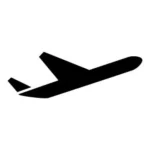Becoming a pilot is an exciting and rewarding career path. Whether you aspire to fly commercial airliners, private jets, or helicopters, obtaining a pilot license is the essential first step. This blog post will guide you through the process of acquiring a pilot license, from meeting the basic requirements to passing the necessary tests and acquiring the appropriate certifications.
**Eligibility Requirements**
To be eligible for a pilot license, you must meet certain basic requirements. First and foremost, you must be at least 17 years of age. Additionally, you must possess a high school diploma or equivalent, as well as a valid medical certificate issued by a Federal Aviation Administration (FAA) medical examiner.
**Training and Flight Time**
The next step is to undergo flight training. You can enroll in a flight school or hire a certified flight instructor to provide you with the necessary instruction. The amount of training required will vary depending on the type of license you pursue. For example, a Private Pilot Certificate requires a minimum of 40 hours of flight time, while a Commercial Pilot Certificate requires at least 250 hours.
**Written and Practical Tests**
Once you have completed your flight training, you must pass a series of written and practical tests administered by the FAA. The written tests cover topics such as aerodynamics, weather, and navigation. The practical tests assess your flying skills and demonstrate your ability to safely operate an aircraft.
**Medical Certification**
As mentioned earlier, you will need to obtain a valid medical certificate from an FAA medical examiner. This certificate is required to ensure that you are physically and mentally fit to fly. The medical examination will include a review of your medical history, a physical examination, and various tests to assess your vision, hearing, and coordination.
**Certification**
After passing the written and practical tests, you will receive a pilot certificate. This certificate indicates that you have met the FAA's requirements and are authorized to fly aircraft. Depending on your level of training and experience, you can obtain different types of pilot certificates, such as a Private Pilot Certificate, Commercial Pilot Certificate, or Airline Transport Pilot Certificate.
**Continuing Education**
Once you have obtained a pilot license, it is important to continue your education and training. The aviation industry is constantly evolving, and new regulations and technologies are emerging. By staying current with the latest developments, you can ensure that you maintain your skills and knowledge as a pilot.
**Career Opportunities**
With a pilot license, you will have access to a wide range of career opportunities. You can choose to fly for commercial airlines, private companies, or government agencies. There are also opportunities for flight instruction, aviation management, and other related fields. The aviation industry offers a rewarding and challenging career path for those who are passionate about flying.
